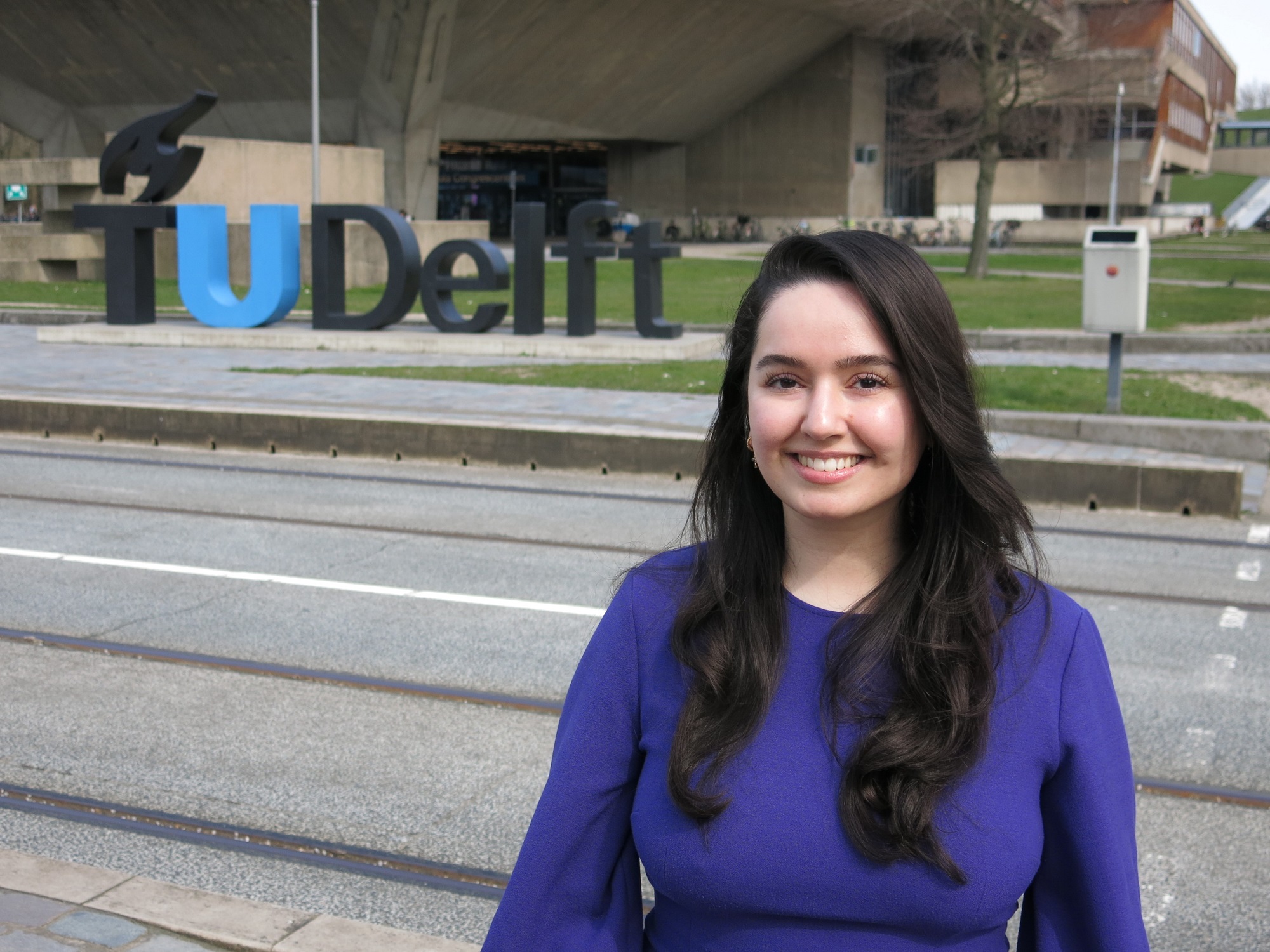Who are the people who study or work at TU Delft? We meet them in Humans of TU Delft. This time: master’s student Parya Lotfi got involved with a local community project.
(Photo: Heather Montague)
English only
“I did a bachelor’s in Systems Engineering and then I continued with my master’s in Systems Engineering and Policy Analysis at the Faculty of Technology, Policy and Management. During my bachelor programme, I took the personal leadership module given by Glenn Weisz. He graduated from TU Delft and was later a lecturer here for the honours programme. He taught the course for seven consecutive years and my year was his last. To optimise the learning experience, the module was divided up in two sections. In the first half we learned about the theoretical background of personal leadership and about making social impact.
He wanted us to realise that there’s more to life than our technical education. In the second half we formed multidisciplinary student teams and actually made an impact. He took us to the Buitenhof in Delft, the neighbourhood where he grew up. He argued that social projects in the Buitenhof can only have lasting results if local residents and community organisations are involved actively as equal partners.
The Buitenhof is a neighbourhood that deals with multiple social challenges and is often featured negatively in the press. As we learned more about social impact, one of the student teams came up with an idea to use community art in order to increase engagement, creativity, and identity in the neighbourhood. They went around the neighbourhood, talked to people who lived there and people were enthusiastic about the idea.
After the Leadership course was done and they got awarded with the Leadership Award, they wanted to make it happen in real life and that is how NOBIS (in Dutch) started. The three core values of NOBIS are identity, aesthetic, and connectivity. They started with the help of CANIDREAM (in Dutch), the organisation that Glenn directs, which is also a partner of TU Delft.
CANIDREAM (Can I Dream) foundation is an experienced organisation in youth and community empowerment that is active in nine cities in the Netherlands. In Delft they work with the youth of the Buitenhof, empowering them by showing them that there are a lot of opportunities out there. For example, they bring kids to TU Delft to show them they can pursue a career in technology.
NOBIS ultimately joined CANIDREAM as an autonomous commission and was able to acquire professional guidance, funding and the network needed to complete the complex project. In 2021 NOBIS presented the first mural called La Perla, a beautiful painting on a residential flat of a girl with a pearl necklace signifying the hidden pearls that the Buitenhof accommodates. The mural actually won this public prize called Le Comte, which is an annual award for the best embellishment of the Delft cityscape. The people of the community voted for this project to win and that was really nice.
After some time, I saw Glenn again when he was on campus and he asked me if I wanted to collaborate on a project and I decided to join. While the first board of NOBIS was mainly TU Delft students, on the second one I am the only student. I work closely together with people from the community itself and with some organisations working to make the neighbourhood a better place.
‘The grand opening of the new artwork will be in June’
One of the pillars of NOBIS is participation. Of course, the beauty of artwork stands out in time, but the process of engaging the community is paramount for success. Therefore, we have organised a range of workshops with different groups like seniors, children, families, and women and asked them who their heroes are. The theme of this year’s mural is ‘Forgotten Heroes’. Internationally renowned artist Roelof Schierbeek, who goes by the name Beyond, has used their input for the design.
The grand opening of the new artwork, called Mirá Mi (Watch Me in Papiamento), will be at the start of June. The artwork will be a combination of professional art and amateur art, since not only Roelof but also several residents who join our design contest will be able to put their designs on the wall permanently under supervision of the professional artist. The beautiful thing about NOBIS is that we create engagement in the neighbourhood.
With the realisation of the second artwork, we give birth to an art route, a collection of artworks in the neighbourhood. The next team of students could help NOBIS to further shape the art route by increasing the amount of art works. We have the city centre in Delft which is really beautiful, but tourism doesn’t need to be limited to the city centre. There are examples in other cities around the world that have this community art or street art and it attracts a lot of tourists. We want to do the same for the Buitenhof.
My year will end in June and we are looking for people who are interested in doing a bit more for Delft and having an amazing social impact on the Buitenhof. I think TU Delft students can contribute a lot and they can also get the chance to learn how professional artwork can be created from start to finish.”
Want to be featured in Humans of TU Delft? Or do you know someone with a good story to tell? Send us an e-mail at humansoftudelft@gmail.com
Heather Montague / Freelance writer



Comments are closed.